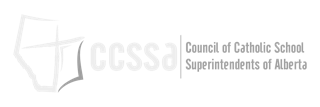Are Alberta Catholic schools really distinct from public schools?
Catholic schools are faith-based schools whose educational purpose is not only the transmission of knowledge, but also the formation of the whole person in terms of body, mind and spirit.
Can non-Catholics attend Catholic schools?
Although it is the constitutional mandate of Catholic schools to provide Catholic education to Catholic students, non-Catholic students can and are welcome to attend Catholic schools. Catholic schools welcome all faiths and backgrounds. This is in keeping with the traditional evangelizing mission of Catholic education.
Shouldn’t Catholics be paying for their own schools?
Yes - and we do! Alberta Catholic ratepayers represent approximately one quarter of Alberta’s tax revenue base; we effectively fund Catholic schools through our property, income and other taxes.
Can’t Catholic and public school boards work together to create efficiencies?
In fact, Catholic and public school boards save taxpayers millions of dollars each year through a variety of partnerships such as co-operative school financing, purchasing, transportation, energy management and other shared services.
Are Catholic schools all-inclusive and welcoming?
Students of all races, cultures and backgrounds attend and learn together in Catholic schools, just as they do in public schools; all are welcome. Our students are taught to respect and affirm the diversity and interdependence of the world’s people, religions and cultures. Respecting principles of diversity and inclusion are central in the teachings of the Catholic Church and thus learning about other religious beliefs is integral to the Catholic school curriculum. Our Catholic schools are all-inclusive and we instill in students the values of tolerance, respect, love of neighbour and community service. Catholic schools share a foundational belief that all children are loved by God, are individually unique and that the school has a mission to help each student to fulfill their God-given potential in all aspects of their person: physically, academically, socially, morally and spiritually. Therefore, all students, regardless of background, heritage, race, economic and societal status, are accepted and supported in a safe and caring learning environment
If public schools offered 'Catholic courses' could we merge the separate school system with the public one?
The Catholic school offers more than a mere segment of instruction in the faith. It is a community that permeates the Catholic faith throughout every aspect of the school. Christ’s teachings are not only taught, but witnessed and exemplified in the actions of our community members. Separate school boards are critical to ensuring that that our constitutionally-protected right as Catholics to an authentically Catholic education for our children is upheld.



